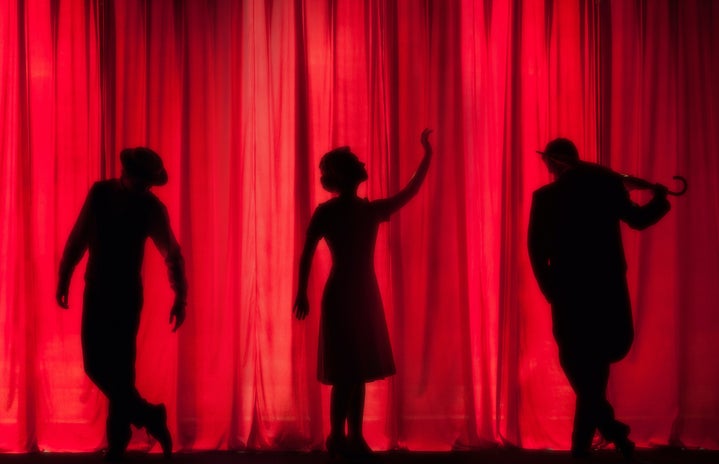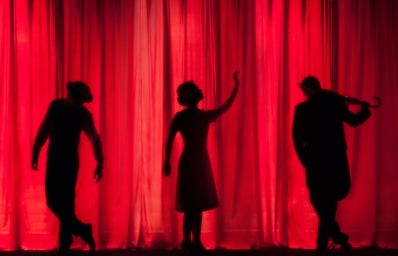Eartha Kitt is everything I’d like to be when I grow up. Throughout her lengthy career, she was known for her astounding work as a comedienne, dancer, singer, actress and activist; and she is also renowned for serving as the main source of inspiration for the characterization of the modern Catwoman, one of the most beloved DC characters in history. In fact, you can also recognize her for her voice-acting role as Yzma, the eccentric and quite spunky villain from The Emperor’s New Groove (2000). She truly loved embodying bad and subversive characters. Despite her petite frame, she always succeeded in adding her own signature touch to every role she played; most of which consisted of representing villainous women. My hot take: female villainy was made cool thanks to her. Kitt was already making headlines back in the 50’s with songs like “I Want To Be Evil”, which I believe is a premonition of the modern take on female villains. She expressed what many women thought and desired back then but never dared to embody: the femme fatale, the dark queen, the independent woman. It’s no surprise that today villains are celebrated, since we identify with female characters that are less than perfect. There’s something human about people giving in to their temptations and messing everything up for a chance to fulfill their dreams or to seek petty revenge, even when they usually do it in terrible ways. Women, for the most part, are expected to be perfect angels that have no yearnings of their own, incapable of doing harm to get what they want. It’s this same line of thinking that guided us to celebrate criminals like Harley Quinn and Catwoman from The Batman franchise, Cruella and Maleficent from the Disney Universe, Amy Dunne from the movie Gone Girl (2014) (this one is controversial, but her “cool girl” monologue has raised an army of sympathizers with good reason), Jennifer from Jennifer’s Body (2009), and much more.
Why are we so attracted to these women? During the original iterations of Batman, Harley Quinn acts like a straight-up lunatic that would gladly lay down her life for her abusive boyfriend, Cruella is a puppy killer (even though her new characterization is animal-friendly), Maleficent puts a devastating spell on a whole town because she wasn’t invited to a party (I’d be upset too, not going to lie), and Amy did a lot of crazy things that I won’t delve into since I would spoil the movie. Interestingly enough, these same flaws hold a certain charm for the viewer as each of their stories develop. Women and girls who suffered through abusive situations can find solace in Harley’s bravery to leave dangerous circumstances and become her own fully-fledged person, as we see in Birds of Prey (2020). Cruella from Cruella (2021) is given freedom to pursue her own brand of revenge against her mother’s killer, while reaching for her dreams and desires, a feat which previously wasn’t shown as much in Hollywood films for female characters. Needless to say, I’m sure we can all attest to the multidimensional personalities of women, we don’t have to pretend that we would never avenge our loved ones and try to fulfill our goals one way or the other (truly, high ambition is a noble quality to have). Another villain that set the trend was Angelina Jolie’s Maleficent from Maleficent (2014), this powerful fairy was more enamored with the responsibilities of caring for her “daughter” than with fulfilling her original evil intentions, successfully winning the hearts of many in a tangible way. Sequels don’t just appear out of thin air; remember that people pay for what they’d like to see more of, and the first Maleficent film had a huge following worthy of a second movie. Sequels don’t just appear out of thin air, people pay for what they’d like to see more of and Maleficent had a huge following for a second movie. Now, Amy Dunne from Gone Girl (2014) is a special case, and I’ll try my best to not spoil the whole movie. She suffered a massive blow in her marriage, her husband cheated on her with one of his students, and his sudden dismissal of her presence in his life led her to become one of the most awe-inspiring villains in cinematic history. Her “cool girl” monologue resonated with almost all the female viewers. She narrates the transformation that many women undergo to keep a man and to seem like his perfect dream girl, costing the individuality and dignity of the woman in question. Amy goes to great lengths to take back her power and admittedly made mistakes, but her monologue and her anger made her relatable to a lot of us. It’s one of those rare feminist movies that are so controversial that they slowly become masterpieces after dissecting them. You need an open mind and keen observation skills to grasp all of the hidden meanings in this movie.
Villains will not go anywhere as long as people identify with them, we’re not getting any less imperfect so they’ll continue to grace our screens with their stories. I, for one, don’t mind at all, it’s time we foster spaces for creativity and freedom to let women express their unique experiences. I’m honestly tired of the good but repetitive middle-aged white man that saves the day in films, aren’t you?


